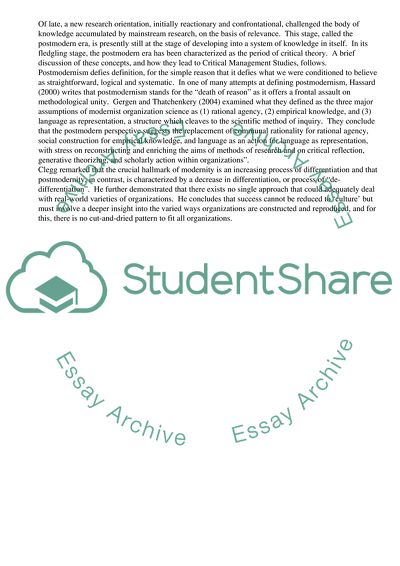Cite this document
(How Critical Management Studies Differ from Mainstream Management Rese Coursework, n.d.)
How Critical Management Studies Differ from Mainstream Management Rese Coursework. Retrieved from https://studentshare.org/management/1721426-critical-and-post-modern-theories-of-organisation
How Critical Management Studies Differ from Mainstream Management Rese Coursework. Retrieved from https://studentshare.org/management/1721426-critical-and-post-modern-theories-of-organisation
(How Critical Management Studies Differ from Mainstream Management Rese Coursework)
How Critical Management Studies Differ from Mainstream Management Rese Coursework. https://studentshare.org/management/1721426-critical-and-post-modern-theories-of-organisation.
How Critical Management Studies Differ from Mainstream Management Rese Coursework. https://studentshare.org/management/1721426-critical-and-post-modern-theories-of-organisation.
“How Critical Management Studies Differ from Mainstream Management Rese Coursework”, n.d. https://studentshare.org/management/1721426-critical-and-post-modern-theories-of-organisation.


